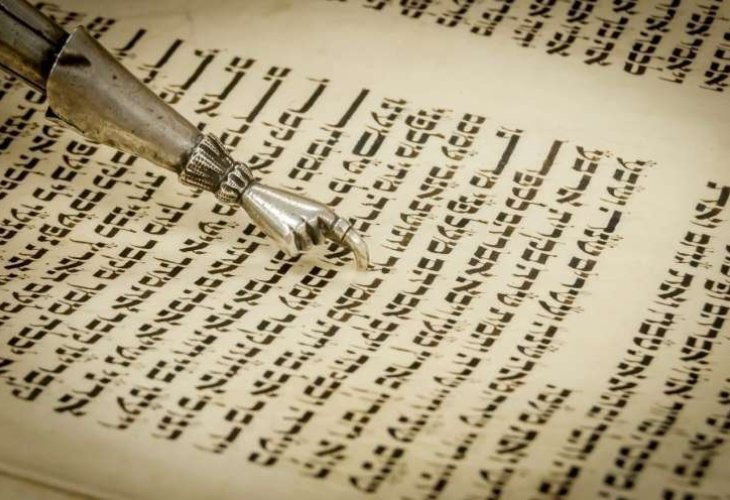Jewish Law
Parashat Acharei Mot: 26 Commandments Defining Our Spiritual Lives
Holy relationships take us to spiritual heights; forbidden relationships lead to spiritual catastrophe
 (Photo: shutterstock)
(Photo: shutterstock)Parashat Acharei Mot is the sixth Torah portion in Sefer Vayikra (Leviticus). In non-leap years, it is read together with Parashat Kedoshim. There are a total of 26 mitzvot detailed in Parashat Acharei Mot, all of which relate to maintaining a state of purity both in our relations with Hashem and with other people.
1. Prohibition of entering the Temple unnecessarily (negative mitzvah)
According to halachah (Jewish law), one may only ascend to the Temple Mount in a state of holiness. Attaining this state is achieved via a purification process that is currently impossible due to various factors. A person who nonetheless ascends commits an aveirah (transgression) and not a mitzvah. In certain cases, the offense is punishable by karet (spiritual excision).
2. The commandment of the priestly Yom Kippur service (positive mitzvah)
The Yom Kippur service in the Temple is a positive commandment, and its purpose is to atone for the sins of every single member of the Jewish People. The service performed by the priests, led by the High Priest on Yom Kippur, was the most important service performed in the Temple throughout the year. Yom Kippur was the only day in the year when entry into the Holy of Holies was permitted, and even then only for the High Priest.
3. Prohibition of slaughtering sacrifices outside the Israelite courtyard of the Temple (negative mitzvah)
One may neither slaughter nor offer up a sacrifice outside the Temple precincts. This is a severe prohibition, and the punishment for either of these acts is karet if done intentionally, or a sin offering if done unintentionally.
(During certain periods before the Temple was built, it was permitted to offer sacrifices on bamot (altars) anywhere. After the Temple was built, Jews were no longer permitted to offer sacrifices on bamot. Non-Jews, however, are permitted to offer a sacrifice to Hashem anywhere.)
4. The commandment to cover the blood of animals and birds after kosher slaughter (positive mitzvah)
After slaughtering kosher birds or animals, the shochet (slaughterer) must cover their blood with earth.
5. Prohibition against taking pleasure with forbidden women (negative mitzvah)
Doing anything that may lead to or that resembles forbidden relationships is forbidden. This includes virtually all forms of physical contact.
6 - 23. Eighteen different types of forbidden relationships (negative mitzvot)
These include relations with one's parents and step-parents, between siblings and step-siblings, grandchildren, and other relatives and relatives by marriage.
The prohibition against marrying two sisters is one of these eighteen forbidden relationships listed in Parashat Acharei Mot. A man may not marry his wife's sister even after divorcing his wife. He may only do so if his first wife has passed away.
The punishment for intentionally violating any of these prohibitions is karet; for unintentional violation, one must bring a sin offering to the Temple.
24. Prohibition against relations with a menstruating woman (negative mitzvah)
Intimacy with one's wife during her menstrual period and the impure period that follows it is forbidden. The punishment for intentionally violating this prohibition is karet, and for unintentional violation one must bring a sin offering to the Temple. According to the Torah, a woman is considered a niddah (in an impure state) from the moment menstrual blood begins to emerge from the cervix until her immersion in a mikveh (ritual bath) after seven days have passed from the conclusion of bleeding.
25. Prohibition of offering up one's offspring to Molech (negative mitzvah)
As Rambam (Maimonides) states: "We are warned against giving our children to the well-known deity at the time the Torah was given, whose name was Molech. Its worship ... involved kindling a great fire before the idol, and one would take his own child and give him to the priest who conducted the service for that deity, and the priest would pass the child through the fire from one side to the other."
26. Prohibition of male homosexual relations (negative mitzvah)
The prohibition of homosexual relations is considered one of the forbidden relationships detailed in the Torah, and is one of the most severe prohibitions in Jewish law. This aveirah is considered to be sexual immorality, which is one of the three prohibitions for which one must die rather than transgress.

